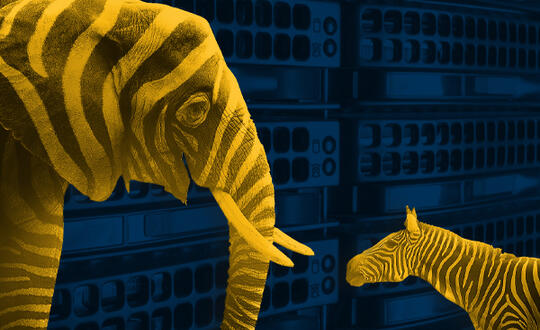Innovation Interchange: Unlocking the Potential of Crowdsourced Intelligence Across Defense, Healthcare and Financial Services Sectors
May 21 2024
In the contemporary landscape of intelligence gathering, the emergence of crowdsourced data has paved the way for revolutionary approaches to information acquisition. Spearheading this transformation are diverse sectors, including defense, healthcare, and notably, financial services, which have embraced crowdsourcing to fortify risk management and enhance decision-making processes.
Traditionally, intelligence gathering using humans, known as HUMINT in intelligence circles, relied on intricate personal interactions to procure information from individual sources. However, crowdsourcing diverges from this model by harnessing technology to aggregate insights from a vast and varied pool of contributors, fostering a more expansive and decentralized approach to data collection.
The distinction between crowdsourced data and traditional HUMINT lies in both methodology and sourcing. Whereas HUMINT tasks individuals directly, cultivating relationships over time, crowdsourcing employs technology to engage a broad spectrum of contributors anonymously and en masse.
Whereas HUMINT tasks individuals directly, cultivating relationships over time, crowdsourcing employs technology to engage a broad spectrum of contributors anonymously and en masse.
This methodological shift not only mitigates risks inherent in traditional intelligence gathering, but also necessitates a reevaluation of oversight and policy frameworks. For instance, within the defense sector, the Department of Defense has pioneered the use of crowdsourcing through initiatives such as "Bug Bounty" programs, tapping into the expertise of ethical hackers to fortify digital infrastructure.
Moreover, crowdsourcing facilitates the analysis of satellite imagery and forecasting through civilian engagement, empowering the military with multifaceted information gathering capabilities that adapt dynamically to emerging threats.
Beyond defense, the transformative potential of crowdsourcing reverberates across sectors, from healthcare to financial services, catalyzing innovation and problem-solving. In healthcare, global volunteers collaborate to analyze extensive medical datasets, accelerating medical research, and enhancing diagnostic accuracy.
The transformative potential of crowdsourcing reverberates across sectors, from healthcare to financial services, catalyzing innovation and problem-solving.
During the pandemic's onset, crowdsourced data from digital thermometers revealed early indications of widespread infection, underscoring the vital role of decentralized intelligence in public health crises.
Similarly, financial services institutions leverage crowdsourced data for fraud detection and risk management, harnessing collective intelligence to refine lending practices and investment strategies. Peer-to-peer lending platforms expand access to capital, while crowdfunding initiatives empower entrepreneurs to realize innovative ventures with community support.

As industries embrace crowdsourcing to optimize processes and glean actionable insights, it becomes imperative to navigate associated legal and business risks prudently. Consulting with legal experts well-versed in crowdsourced data's intricacies ensures responsible utilization and safeguards against potential liabilities.
In essence, crowdsourced intelligence represents a paradigm shift in information gathering, democratizing access to diverse perspectives and catalyzing innovation across sectors. By embracing this transformative approach, industries unlock boundless opportunities to confront contemporary challenges with agility and foresight.